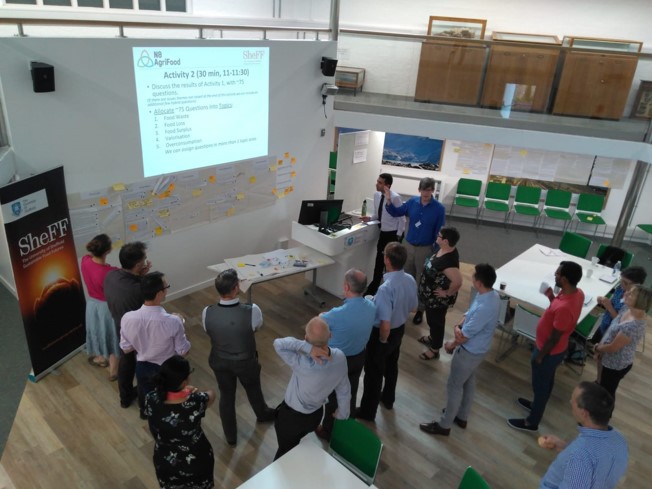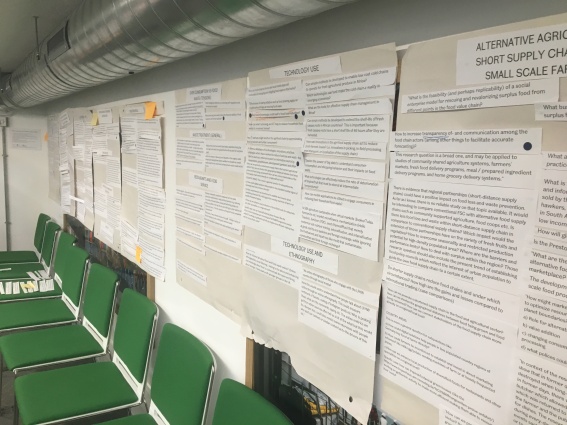By Jordon Lazell @jlazell
In order to further any topic of concern, first you must gather experts to understand where current knowledge lies and where the research agenda should go next. Last week I was invited to a workshop thats purpose was to generate research questions to tackle the problem of food waste. Organised by Christian Reynolds and hosted by SheFF, the University of Sheffield’s Sustainable Food Future group, the forum brought together academics and practitioners working the areas of food waste, loss, surplus, valorisation and overconsumption to clarify and narrow down the UK and wider global research agenda into the most important and most impactful research questions.

Before the event 102 people submitted their top research questions electronically, these were grouped into 48 different topic areas. The first task of the day was to amalgamate similar questions and acclimatised ourselves with the range of topics under consideration. Each participant then selected the three questions they deemed most critical. After re-writing and re-wording questions to ensure their premise was clear, we were left with 49 questions all of which were key priorities, yet this number still had to be halved. To achieve this, each participant gave a score of 1 (of least importance) to 4 (of most importance) to each question, with factors such as how achievable the question is and the level of impact it could deliver also considered. After the scores were tallied we were left with a final 25, that after some further polishing, were finalised.

At points this was not an easy process, there were several subjects of debate. For example how preventing food waste in one area of the supply chain may have knock on effects elsewhere. Discussions also featured the need for the questions to be representative of both developed and developing world context, such as being inclusive of consumers who mainly consume food they produce themselves, amongst other points.
I thoroughly enjoyed the whole day. I was struck by how involving this method of ‘brainstorming’ proved to be, with no single voice being considered above the rest. The suggestions made by each participant were equally considered via the democratic process of voting. I really enjoyed discussing the intricacies of the research questions proposed with the others at the event and it was fantastic to see the breadth of issues that were initially submitted, ranging from the role that insect eating could play to the usage of eye tracking marketing to food waste measurement models, the influence of gender and different cultures to urbanisation, packaging aesthetics and even a type of African mould. It was a tough challenge to narrow down the questions, but through Christian’s guidance and adherence to a clear process, collectively the output was a succinct and representative list of priority questions which are critical in taking forward to tackle the problem of food waste across all stages of the supply chain.
A report and journal paper is currently in preparation with the key questions to be disseminated soon.
